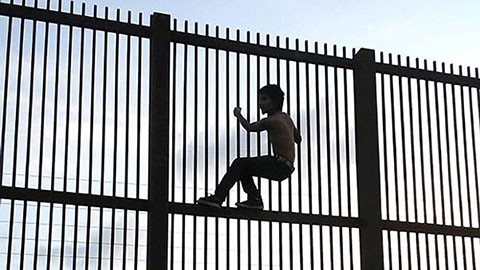- About
- Topics
- Picks
- Audio
- Story
- In-Depth
- Opinion
- News
- Donate
- Signup for our newsletterOur Editors' Best Picks.Send
Read, Debate: Engage.
Earlier today, Supreme Court Justice Anthony Kennedy announced he will be retiring this coming July, evacuating a pivotal seat on the bench. A moderately conservative justice, Kennedy often tilted the court’s position rightwards on major decisions, particularly on issues surrounding the Second Amendment (right to bear arms), voting rights, and the free market. Among his notable milestones were writing a majority opinion that allowed unlimited campaign spending by corporations and unions, and siding with the majority in the 2000 Supreme Court handing of the presidency to George W. Bush. Yet, Kennedy also maintained a certain balance in the court by promoting liberal agendas on issues such as gay rights, affirmative actions, and the death penalty.
With Kennedy gone, President Trump will now be granted the opportunity to nominate a Supreme Court judge who will guarantee conservative decisions on issues such as abortion and Second Amendment. Trump’s nomination of Neil M. Gorsuch in January of 2017 has maintained the court's balance in favour of conservatives; it is the upcoming pick by the President, however, that would tilt it markedly to the right.
Kennedy’s announcement came on the heels of a tumultuous week, during which a series of 5-4 Supreme Court rulings buttressed conservative agendas. On Tuesday, the court upheld President Trump’s notorious travel ban on citizens of seven predominantly Muslim countries, despite visceral objections by the four liberal justices. Later that day, the court vetoed a California bill requiring religious pregnancy crisis centres to inform their patients about abortion options, claiming such a requirement would infringe upon the formers’ freedom of speech. Today, the conservative majority ruled that government workers who choose not to join unions will not be required to pay their share to support labour unions, thus critically diminishing the latter's budget and effectiveness.
As the recent track record of the Supreme Court demonstrates, a predominantly conservative court will undoubtedly alter the socio-political landscape of the United States. It will do so, primarily, by endorsing and potentially expanding presidential power and jurisdiction over critical areas (such as immigration) and catering to the needs of the country’s financial (and religious) elites. Thus the Supreme Court, a government branch designed to act as an impartial defender of the democratic process, is in risk of morphing into a tool used by the executive branch to guarantee and expand its authority over the state.
As the battle over Kennedy’s seat commences, the only hope for liberals is to apply sufficient pressure on Democratic representatives to refuse to consider Trump’s picks.
